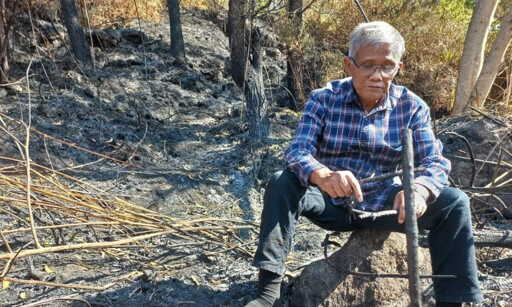SAMOSIR, Indonesia — On retirement from public life, Wilmar Eliaser Simandjorang found a quiet place on a hillside overlooking Lake Toba, on the Indonesian island of Sumatra, to write about this landscape sacred to the region’s Batak people. “If we don’t pay attention to this, Lake Toba will be just a memory,” Wilmar told Mongabay Indonesia at his home near the lake, the site of a volcanic eruption 74,000 years ago that plunged the world into global winter and famine. More recently, North Sumatra province’s environment department has warned of a burgeoning pollution problem from the waste dumped into Toba, the largest volcanic lake in the world. Many here in this subdued lakeside region today, which is home to Sumatra’s ethnic Batak people (and the center of seven districts in North Sumatra province), say a complex array of changes taking place around the Toba landscape are reaching a tipping point. “The forest is being cut down, both legally and illegally — biodiversity is being burned,” Wilmar said. “Rainwater is just running off; it carries ash, trash and pesticides into the lake.” A study of 60 water samples published in the journal Advances in Oceanography and Limnology in 2024 confirms worrying local testimony. The research, conducted in 2020-2021 by scientists from the Bogor Institute of Agriculture, Indonesia’s premier forestry university, indicated intensive ecological distress. Researchers revealed nitrogen levels greater than the safe threshold set by Indonesia’s environment ministry, threatening both fish and water quality. Civil society organizations, church groups and community…This article was originally published on Mongabay
From Conservation news via this RSS feed


